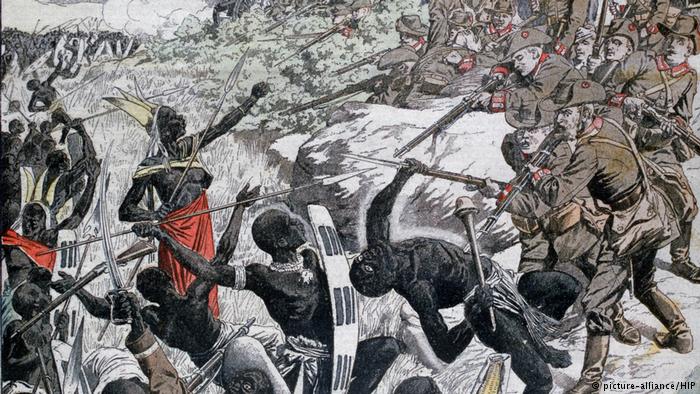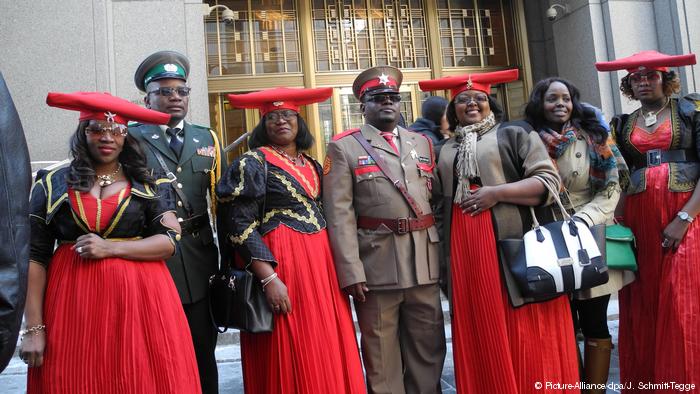Germany has returned skulls of people murdered during the Namibian genocide a century ago. Tens of thousands of Namibians were slaughtered between 1904 and 1908.
Germany then colonized the Southern African nation and was responding to an anti-colonial uprising. Victims were from the Herero and Nama people who were indigenous Namibians.
A ceremony was performed on Wednesday in Berlin at a church service to hand over the remains.
A descendant of the Herero tribe, chief Vekuii Rukoro was unhappy the ceremony took place in a church. He had preferred it took place in a German government building.
Rukoro also accused Berlin of taking too long to formally apologize for massacre.

“By trying not to acknowledge the past, the German government will continue to make serious mistakes as regards present and future policies,” Rukoro told the gathering at the church.
“We are after all the direct descendants of these remains and we should not be ignored,” he added.
What sparked the killings?
In 1904, the Herero and Nama people rebelled in response to the expropriation of their land and cattle by Germany. The rebellion took place in then German South West Africa.
The head of the military administration in the region, asLothar von Trotha, ordered the massacre in response to the uprising.

The indigenous Herero and Nama people had to flee their lands. Those killed were people found trying to return to their expropriated lands.
Some were also kept in concentration camps. Over 100,000 died in the massacre although there has been disagreements over the exact death toll.
Germany’s apology
Germany has for years refused to accept responsibility and apologize. In 2016, Germany finally said it was prepared to apologise in principle.
The European super power however said it was negotiating with the government of Namibia on how to deal with the aftermath of the genocide.

There have been legal actions by descendants of those killed but Germany argued it has given Namibia millions of dollars in development aid.
These descendants are unhappy they were not part of the negotiation process.
Source: Africafeeds.com



